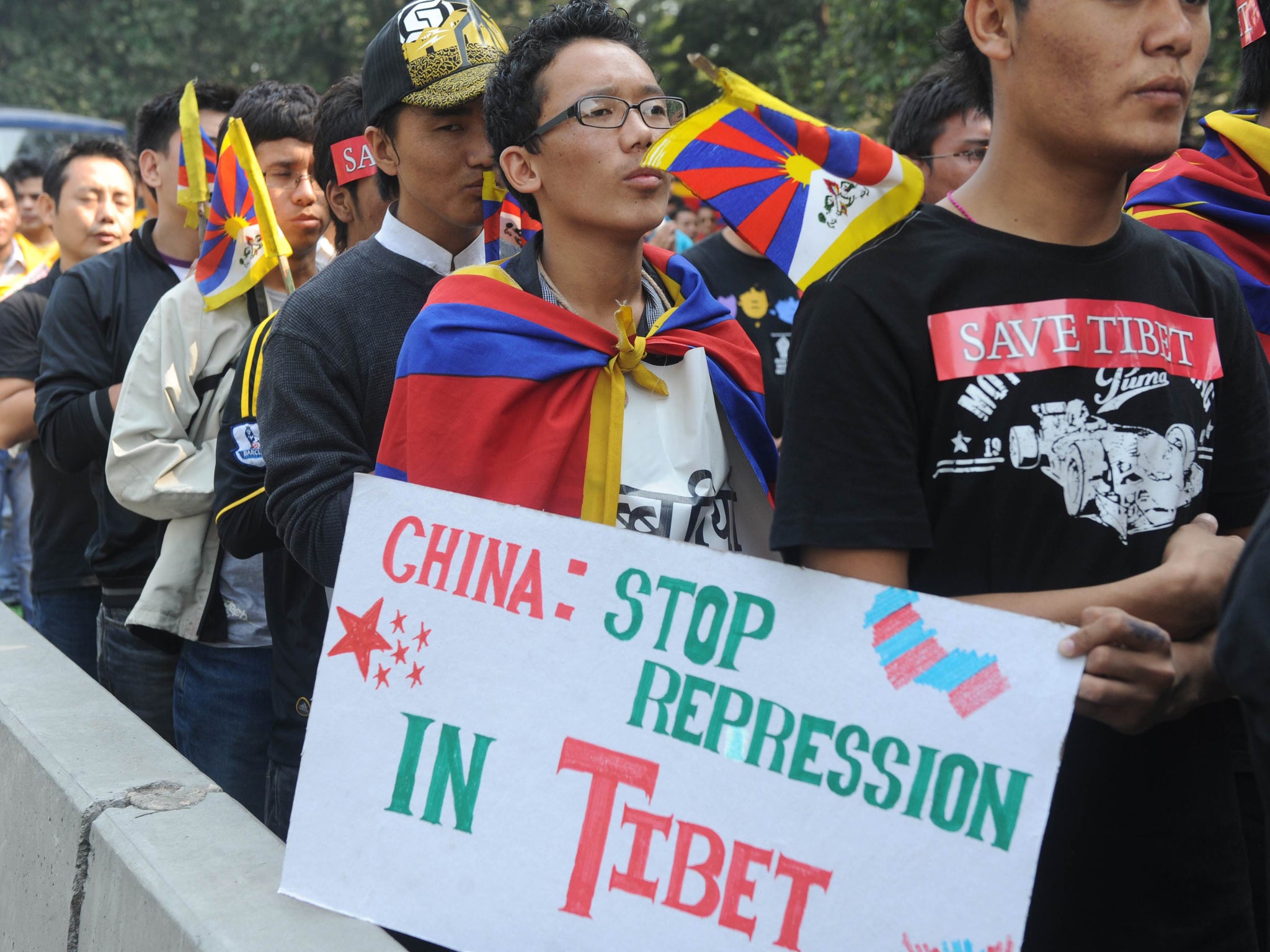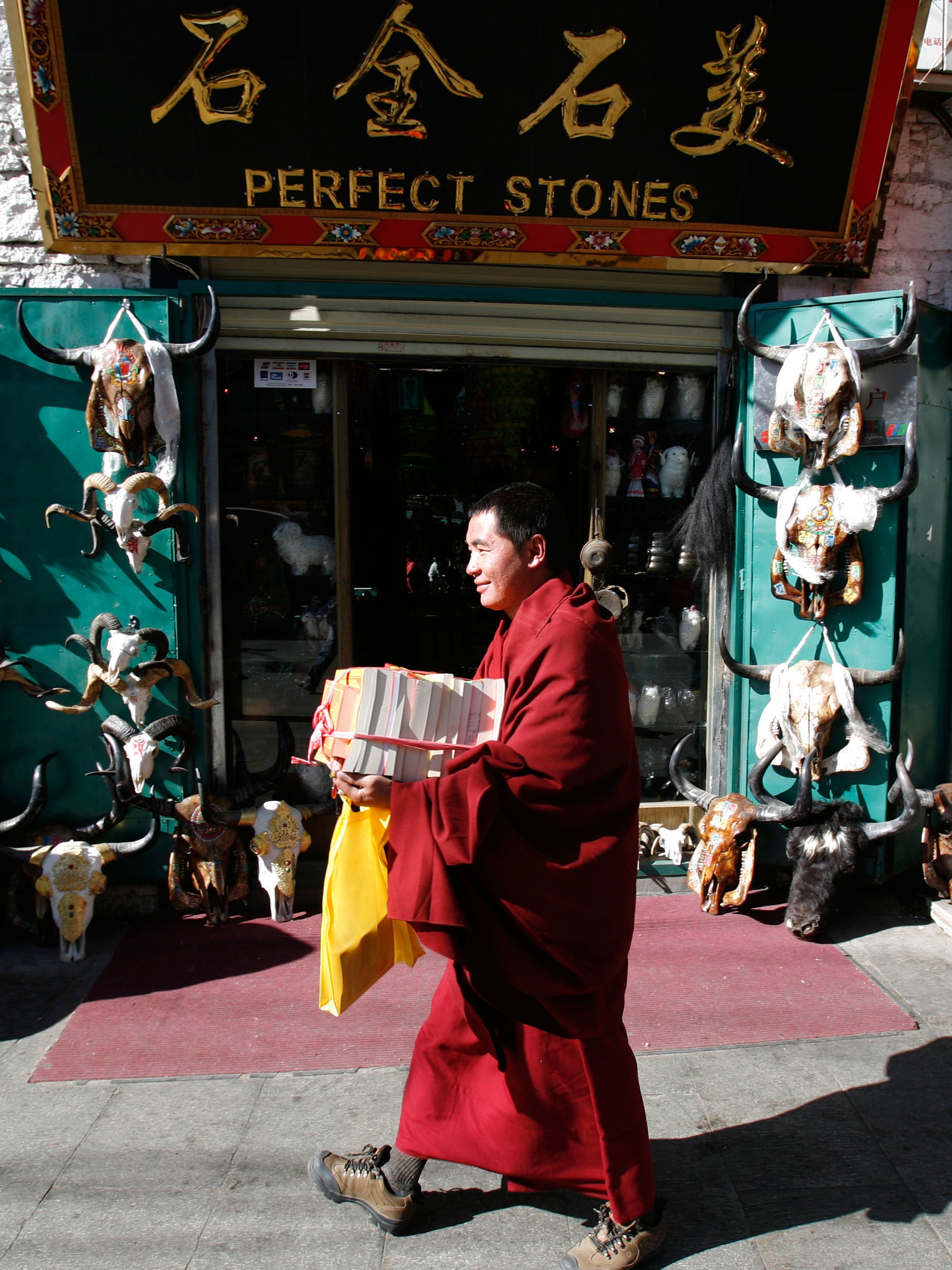China 'bans' Tibetans and other religious minorities from having passports
In 2012 only two passports were issued in Tibet’s Chengdu prefecture despite having a population of 650,000 people

Your support helps us to tell the story
From reproductive rights to climate change to Big Tech, The Independent is on the ground when the story is developing. Whether it's investigating the financials of Elon Musk's pro-Trump PAC or producing our latest documentary, 'The A Word', which shines a light on the American women fighting for reproductive rights, we know how important it is to parse out the facts from the messaging.
At such a critical moment in US history, we need reporters on the ground. Your donation allows us to keep sending journalists to speak to both sides of the story.
The Independent is trusted by Americans across the entire political spectrum. And unlike many other quality news outlets, we choose not to lock Americans out of our reporting and analysis with paywalls. We believe quality journalism should be available to everyone, paid for by those who can afford it.
Your support makes all the difference.China has effectively banned Tibetans and other religious minority groups from having passports, according to a new report.
The report, from Human Rights Watch, accuses Chinese authorities of using a discriminatory double-tiered passport system meaning that residents of areas populated by religious minorities, such as the country’s Tibetan and Muslim minorities, must provide far more extensive documentation than other citizens.
Additional restrictions have been implemented in the Tibetan Autonomous Region and led to a near-total ban on any travel for these residents unless they are on official business.
Passport restrictions in the TAR have been fiercely controlled since 2012 when almost all passports held by residents were confiscated after the Chinese government announced a shift to a new “ePassport” system.
Almost no replacement passports have been issued, however. In 2012 only two passports were issued in Tibet’s Chengdu prefecture despite having a population of 650,000 people.

“Getting a passport is harder for a Tibetan than getting into heaven,” said one anonymous Tibetan blogger in the report, “This is one of those ‘preferential policies’ given to us Tibetans by [China's] central government.”
The report suggests that the slow-track system was put in place specifically to prevent religiously or politically motivated activities that Chinese authorities view as rebellious, such as attending speeches by Buddhist spiritual leader, the Dalai Lama, or independent pilgrimages to Mecca.

In Xinjiang, a region home to 10 million Uighurs Muslims, officials use an archaic method of passport application which requires more documents and sometimes political vetting, according to the report.
Hundreds of Uighurs were also detained last year for illegally entering Thailand, fleeing what human rights groups have claimed is religious persecution in China. The Uighurs claim to be Turkish citizens and while 181 have been allowed to go to Turkey over 100 have been sent back to China.

In the majority of China, a passport must be issued within 15 days and authorities must notify the applicant if there is a delay.
Unlike religious minorities, Chinese travellers took more than 100 million “outbound” trips last year, according to government figures, although most of these trips were to Hong King, Macau and Taiwan.
”If you are a religious minority who lives in a part of the country where most people are minorities, it's virtually impossible to get a passport,“ Sophie Richardson, China director at Human Rights Watch.
”Chinese authorities seem to believe that systematically denying Tibetans' rights to travel brings greater stability to the Tibet Autonomous Region. But it's respect for human rights – including equal access to passports – that might begin to reduce Tibetans' distrust of the government.“
Join our commenting forum
Join thought-provoking conversations, follow other Independent readers and see their replies
Comments